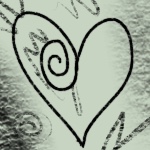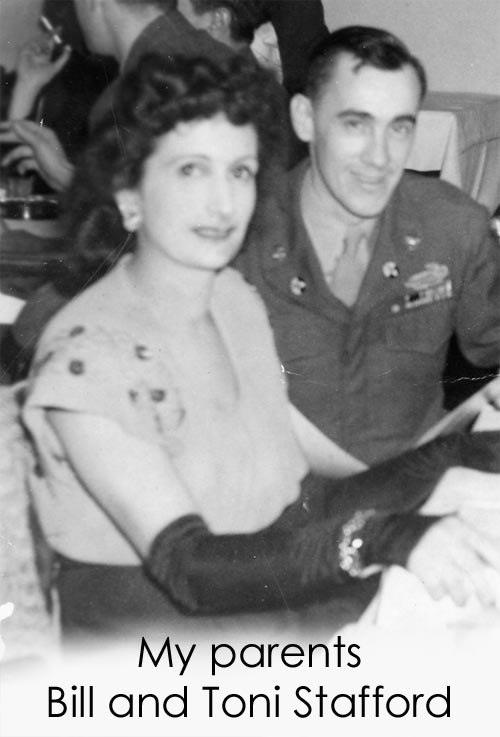
Honoring the Ancestors: The Man Who Raised Me
Honoring ancestors has many aspects for me as a witch, and just as many for me as a human and individual. I want to touch on a few, before talking about my dad.
Ancestors Who Were Oppressors
Human nature being what it is, we all have ancestors who were horrible people, and some who were outright oppressors.
When I teach how to contact ancestors, do ritual with them, and live in alignment with the old ways of our forebearers, someone inevitably asks, “What should I do about awful ancestors? I don’t want any contact with them, let alone honor them.”
Whether the student deems those ancestors oppressors or terrible in other ways, the question is important.
The answer can’t be one-fits-all. Nor can I personally hang the problem all on one hook; I’ve had to approach it from a lot of different angles, including the following:
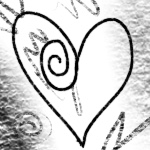 I myself have had to make peace with awful ancestors. For one thing, I don’t want hate in my heart. I can no longer bear the damage it does me.
I myself have had to make peace with awful ancestors. For one thing, I don’t want hate in my heart. I can no longer bear the damage it does me.
For another, making peace helps me regain wisdom lost over the ages—herbal medicine, witchcraft, and other empowering choices suppressed by oppressors.
My very first ancestors at the beginning of human time (well, I believe the line from which I descended started long before that, but I won’t get into that here) started threads of wisdom and power that have spun forward in time. Every one of my ancestors has held and holds a piece of that thread. I don’t want my resentments to break the thread any further than has already happened. Even if an ancestor contributed to that breakage, I want to repair it.
Making peace doesn’t mean I ignore injustices ancestors have perpetrated, any more than I’d bury my head in the sand about living family members who are complete racists or otherwise awful.
But I find some peace in my heart, and that is how I honor ancestors whom I otherwise want nothing to do with, and thus repair threads that might’ve been damaged by them and my own hate. This is what I’ve learned through my own trial and error and what works for me.
What Is Ancestral trauma?
Ancestral trauma—or ancestral wound—is the suffering of a family member or members that then passes down to the next generation and the next, until it is healed. Though it’s passed down through behaviors and internalized oppression, as a shaman I also sense a maimed energy that each generation picks up. That energy also transforms the familial DNA. The behaviors and internalized oppression help create and maintain the energy. And vice versa.
Finding peace about awful people in my familial line is part of how I’ve healed the ancestral wound they passed down to me from the trauma they themselves caused to my other ancestors and that they themselves might have suffered. Carrying hate in my heart continues the legacy of hate and holds trauma securely in my DNA. Feeling hate is one thing. Holding onto that hate is another.
Ancestors if You’re Adopted
 Another common question is how to deal with ancestors if you’re adopted. There are so many questions when it comes to that, including one relevant to this post: making peace with an abusive adoptive parent who has passed on, or with their ancestors.
Another common question is how to deal with ancestors if you’re adopted. There are so many questions when it comes to that, including one relevant to this post: making peace with an abusive adoptive parent who has passed on, or with their ancestors.
A family member of any kind carries (or breaks) the thread of ancestral wisdom, power, and information. My theory is that, should that family member have adopted you, they hold a piece of the thread not only in their own bloodline, but surprisingly enough, hold a piece of the thread in your own bloodline. There’s not space here to go into that theory. But, if you’re like me, making peace with adoptive parents who’ve died could be important.

Awful ancestors are no small concern. There can be huge challenges, including endless questions. It takes time to deal with it all.
For example, it’s taken years to make peace with my father who has passed on. And I still experience some hate for him. I will continue to work on it.
Learning to align with my ancestors that I might live in the magic, beauty, wisdom, and power known by my forebearers has been an ongoing process. There’s been no single step then, voila, all done. But I take one step at a time, and that yields big results.
I’ve repeatedly needed to take different types of action.
For example. I’ve had to channel a lot of ritual to do this work. But now I have a body of rituals I can continue to use and also teach in my classes, and draw on for one-on-one shamanic counseling sessions. (Links to information about classes and counseling are below this essay.)
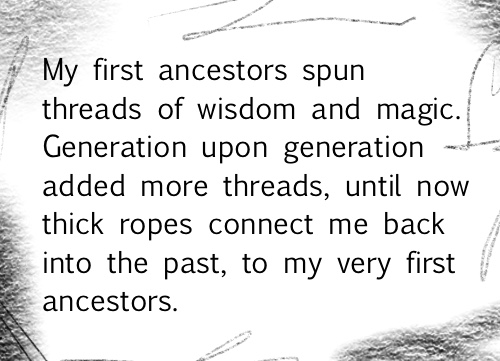
The answers that help me might not be the right ones for you. My experiences are not your experiences. But sharing our experiences can be healing. The following story about my father represents a bit of my journey making peace with him.
May 12, 2020:
Honoring the Ancestors: William Stafford
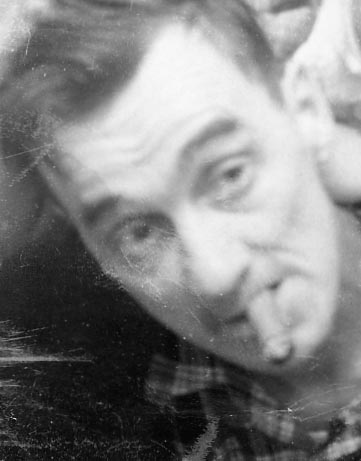 My father was always on the outside looking in. And he loved music beyond all reason.
My father was always on the outside looking in. And he loved music beyond all reason.
He was a small-minded, violent man, who suffered a hard life.
I found his name in the census, which shows that, at seven years old, he disappeared from his mother’s household.
I found someone by his name in another household, that of a farming family. I suspect Bill had been sent out to work and live on a farm because there were too many mouths to feed in his own home. This is possibly corroborated by information one of my relatives has provided. In the census, Bill appears back with his mother a few years later.
Around the time he disappeared from home, his mom remarried. Did Bill’s stepfather not want him? Was this one of the first times Bill was on the outside looking in, face pressed up against the glass?
After a stint in the military during World War II, he returned from overseas and disappeared again. As a child, I was told that, during that period, he was in the south, “living with hillbillies, and ended up on a Georgia chain gang.”
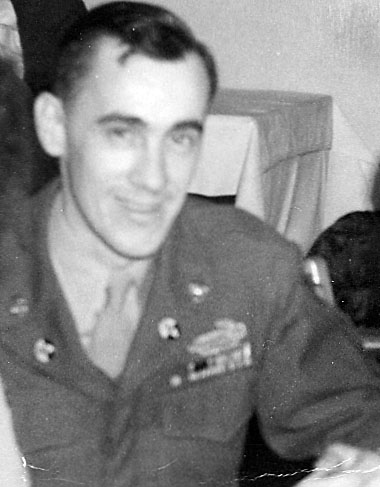
Decades later, I asked him about it. All he’d tell me is that it wasn’t a chain gang. It was prison or jail, I can’t remember which, and he wouldn’t tell me why he was arrested.
After his time in the south, Dad came back to Boston—where we lived—and continued to be on the outside looking in.
He would pretend to be Irish, in a town that adored the Irish.
He would pretend to be a cop. In 1964, I was 14, and the Beatles were playing in Boston. The arena was a madhouse. When the concert was over, the crowd poured out into the lobby, and there was my dad, come to drive me home.
“How did you get in, Dad? Why did they let you in?”
He had convinced the security guards that he was a cop. Perhaps he’d flashed them a fake badge; I can no longer remember.
There was a police radio in his work room in the basement. My dad, the not-cop.
He chased fire engines. One time, he pursued one of those howling trucks, only to see it turn onto our street. He kept following. The truck stopped at our house.
Always on the outside looking in. A spectator to his own house on fire.
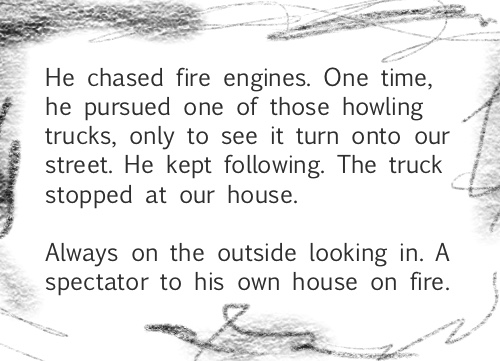
The man was as right wing, racist, sexist, -ist, -ist, -ist, as you can get. But when I was sixteen, I met a guitar-carrying hippie who didn’t have a place to stay. I brought him home. In retrospect, I don’t know why. Dad hated hippies.
But dad didn’t throw the kid out, didn’t care that he was a peace-loving hippy with long hair. The guy was carrying a guitar, and that’s all that mattered.
Or, maybe, Dad knew what it was like to not have a place to stay. Perhaps that’s what happened.
Bill loved folk music as much as he hated liberals. In those days, folk music was paired with Bob Dylan, Joan Baez, and revolution. Dad didn’t care.
I wonder if his appreciation of folk music came from his hillbilly friends.
Bill loved show tunes. This macho man raised me in a home where vinyl recordings of Broadway musicals constantly played in the background. I still know a lot of those lyrics by heart, and still happily belt them out to entertain myself.
 When I was 14, I asked him and Mom if I could start going to folk music clubs. These were clubs for adults, and were not in my neighborhood. They were in downtown Boston and Cambridge.
When I was 14, I asked him and Mom if I could start going to folk music clubs. These were clubs for adults, and were not in my neighborhood. They were in downtown Boston and Cambridge.
Mom and Dad went to a club with me and decided I could go to them on my own.
Their attending the club with me was bizarre because they usually had very little to do with me. I was a feral kid who’d raised herself.
But there was Dad’s love of music again (and Mom’s huge-hearted ability to foster my wild dreams and artistic escapades).
Within months, I was playing some of those clubs myself as a musician.
When Bill died, I felt like someone hit me in the head with a 2 x 4. But only days later, I needed to be in the music studio. Before recording my album, there’d been 10 years of starts and stops. Recording were finally underway, due to circumstances that were temporary, the deadlines were incredibly tight, and I didn’t know how much longer Bruce Smith—my coproducer—would be available. It was now or never for this, my first, album.
It just so happened we were scheduled to record a song I’d written about Dad years back. When I arrived at the studio, I told Bruce that I’d probably break into tears at some point, and to give me five minutes to cry, and that then I’d be as professional as always. I also told him to not pull any punches when we were critiquing the mix; I didn’t want him being sensitive to my feelings; I wanted the best possible recording.
When recording the song, I thought of how Dad’s face was always pressed up against the glass, an outsider looking in. He would’ve loved to have been in that studio with me that day when I was recording a song about him, would’ve loved to have been on the same side of the recording booth’s glass walls.
The album was a bestseller. Dad would’ve loved that.
Mark Chimsky, who’s edited some of my books, asked me for a blurb today. I don’t usually give blurbs. The whole blurb thing is often just one big dishonest elitist scam, with people in power giving blurbs only to other people in power, and excluding most everyone else. But Mark is one of the most ethical, dear individuals I’ve ever met. He would’ve opened the window if he’d seen Dad’s nose pressed against the glass.
Later that day, I saw my blurb along with 19 others. The top blurb was from Johnny Cash. There was my name right below Johnny’s. I wanted to cry. The two names together would’ve meant a lot to Bill.
It doesn’t matter whose name is where. It’s all ego and illusion. Bill’s lack of self-worth drove him to construct a false ego, which he kept inflated by pretending to be Irish in the Boston of my youth, where Irish was a big deal—and an Irish cop at that, which was an even bigger deal—and by bragging about his teenage kid who played guitar.
He kept his false sense of self inflated by hating everyone who wasn’t … him. America was better than the rest of the world. Massachusetts was better than the rest of the country. Our neighborhood was better than all the other neighborhoods. Our family was better than all other families. And he was better than everyone else in the family.
He’d disappeared from the census, disappeared into prison, and disappeared into the recesses of his own self-doubt. So he bragged and hated.
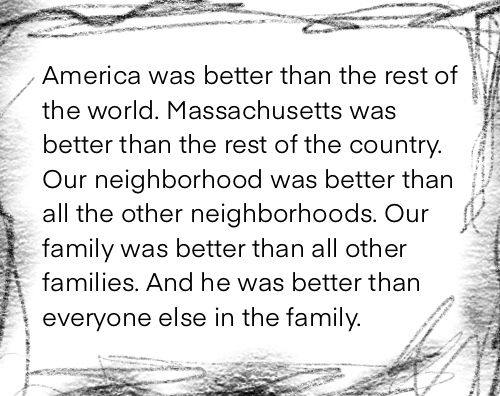
I’m not saying his choice to brag and hate is the inevitable result of being made invisible and being shoved to the other side of the glass.
I’m not saying he shouldn’t have been made accountable for his hatred. I’m saying his choice is understandable.
I didn’t like Bill. He was an awful man, in ways there’s no point in giving details about here. A few years ago, when I found out that he wasn’t my biological father, it was a relief to know that we didn’t share DNA.
But I’ve come to understand that he was an intelligent, passionate, inventive fellow, and that he was shoved around and denied, denied, denied. (For one thing, he was a self-taught electronics engineer and resented that lack of college education kept his earnings low, despite many years in the electronics field.) I’ve come to compassion for this guy who helped make my childhood miserable.
No, I didn’t like Bill. But I’ve come to appreciate him.
… I guess in that sense I’ve come to like him. I appreciate his wandering restless spirit that led him to the south after he’d already been in Europe, long from home.
I appreciate his intelligence, vehemence, passion, and determination.
I’ve often wondered if he was one of the young boys who hopped trains during the depression, thrown out of the house because there wasn’t enough food. If so, that was a hard time, and he was a vagrant, wandering. I appreciate that he wandered away from his own soul, and the closest he could get to chasing after it was running after fire engines.
Wherever he thought the fire engines would bring him was an illusion, even when a fire truck brought him home to our house. And somehow, I’ve come to even like Bill for that.
I imagine somewhere, on the other side of the veil, Bill is wandering. I can’t imagine he’s been laid to rest. I can almost see him with my otherworldly eyes, see him waiting for reincarnation, needing another chance.
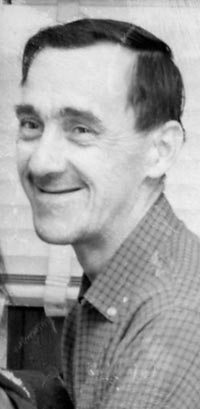 Though it’s geared to inflate his false ego, I’m happy today to tell his spirit, wherever he is, “Dad, look, look where my name is. Next to Johnny Cash’s.” And, “Dad, I never mentioned it before. My album with the song about you on it? It was a bestseller. And that book I told you I was writing, right before you died? Bestseller and dedicated to you.”
Though it’s geared to inflate his false ego, I’m happy today to tell his spirit, wherever he is, “Dad, look, look where my name is. Next to Johnny Cash’s.” And, “Dad, I never mentioned it before. My album with the song about you on it? It was a bestseller. And that book I told you I was writing, right before you died? Bestseller and dedicated to you.”
It doesn’t matter whose name is where. The prestige of a best seller doesn’t matter either. It’s all ego and illusion. But I’m happy to tell Dad where my name went today and to tell him the album and book gained recognition. Because illusions can be all someone has. Blessed be, William.
Additional Material
Honoring mothers: https://stardrenched.com/2017/09/18/ancestor-magic-mothers/
Mentioned above, the best editor ever: https://markchimskyeditorial.com
Newsletters to stay abreast of upcoming classes: https://outlawbunny.com/newsletter/
Spiritual counseling for ancestral trauma and other concerns: https://outlawbunny.com/pastoral-counseling/
